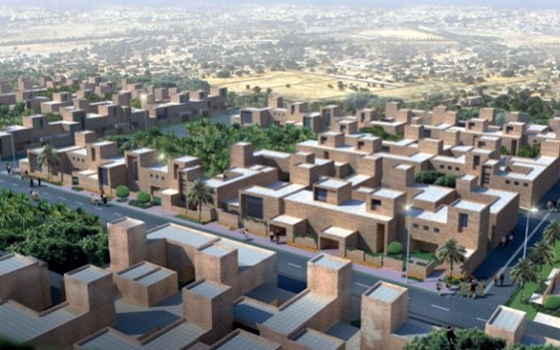Happy days are here for Saudi Arabia's environmentalists. The Presidency of Meteorology and Environment (PME) announced a decree giving all companies five years to meet new air, water and noise pollution standards. All projects must fit into Saudi's plan for international development, and must meet international benchmarks standards as part of the PME's environmental plan to protect Saudi's health and natural resources. The new regulations align with rules approved by Saudi's Council of Ministers in 2008.
Given the kingdom's considerable construction projects, this is big news. A Middle East Macro Monthly report issued by Citi Research tracks $2.5tn in construction projects that are underway in the Middle East, with Saudi Arabia and the United Arab Emirates accounting for 60% of the work. Most is real estate community development ($450m), followed by oil and gas ($194m) and infrastructure, such as railways ($174m).
Companies refusing to comply with Saudi Arabia's new standards within five years will see their projects shut down and suspended for three months, PME general manager Abdul Aziz Al-Jasser states. The new regulations are wide-reaching, addressing soil and land preservation, noise pollution from operating machinery, hazardous and radioactive waste that enters Saudi Arabia's coastal waters and other harmful pollutants.
Global collaboration
Secretary-general of the Saudi Green Building Forum (SGBF), Faisal Alfadl, says that the decree is "an excellent move" and shows a formal commitment to the SGBF's own initiatives. The SGBF oversees 170 construction projects, covering 14m square meters. Several large companies including Saudi Aramco and the Middle East's largest construction firm, the Saudi Binladin Group, are involved.
The biggest megaproject, the King Abdullah Economic City, is valued at $93bn, Alfadl says. "These will all become green building projects, help lower the region's carbon emissions and improve public safety and health."
The SGBF formally offered to help the PME meet its environmental goals. Alfadl says that their success depends on partnerships with the ministries of municipality, water and electricity. "As Saudi Arabia grapples with constant growth, government and industry support is needed to ensure building developments adhere to USGBC Leed certifications and other global rating systems. We need national policies to ensure companies store and sort their construction waste responsibly," he says. "To complete their projects, all contractors, construction companies and suppliers must adhere to these global green standards."
Growing sensitivity: a good thing
David Ottaway, senior scholar at the Middle East Program of the Wilson Center, a prominent US thinktank, points out that the PME decree shows that Saudi Arabia's government recognizes that environmental issues exist. He sees big environmental changes ahead for Saudi Arabia, including reserving their oil for exports versus domestic use. This would be another positive for Saudi's environment, given that oil is more polluting than gas.
Saudi Arabia also has big plans for solar energy technology.
However, Ottaway sees large environmental challenges ahead, such as growing commuter congestion and massive sandstorms, which could cause environmental damage to roads and buildings in and around Riyadh. "All of this makes a five year deadline for the green decree optimistic," he suspects.
The SGBF's Alfadl still sees big changes ahead. Among its construction projects, Saudi Arabian developers are retrofitting over 90,000 mosques in the kingdom using advanced green building techniques to reduce lighting and energy consumption by 40 to 80% and water usage by 30 to 40%. Increased electric vehicle usage will lower pollution further, he adds. "We welcome the PME's move and we have the right support in place."
The Guardian
18 November






















































